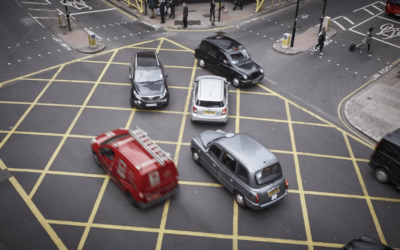Uber drivers reclassified as workers, but what does it mean for the gig economy at large?

It’s official. Uber drivers are workers, they’re not self-employed.
Maybe you remember, maybe you don’t but this issue was first brought up four years ago, and it’s only just been solved.
Since 2016, Uber have been fighting against its drivers’ case through progressively higher levels of the justice system, culminating in the Supreme Court’s ruling last week.
Are Uber drivers entitled to minimum wage? Should they receive holiday pay?
And how much would Uber have to shell out in compensation if so?
An average £12,000 per driver, apparently.
So what does this mean for drivers?
Not only do Uber drivers now qualify for holiday, sick pay and minimum wage, but the ruling indicates a change in the way their working day looks too.
Previously, drivers would only be paid for the time they spent taking a passenger from A to B, which left an awful lot of “waiting around time” unpaid.
Now, the ride-hailing company must recognise its drivers as workers from the moment they log into the app to start work, until they log off at the end of their shift.
Similar issues for Amazon drivers
Earlier this month, Amazon Flex drivers won a similarly high profile case, which should lead to the global delivery service repaying them almost $62 million.
For several years, Amazon had been holding onto money that customers had intended to be given as tips to drivers.
But the American Federal Trade Commission exposed the company for misleading its drivers and customers, sending a warning to gig economy employers at the same time.
What does the Uber ruling mean for the gig economy?
The UK is by no means the only place where Uber’s facing issues and battles against its drivers like this one. A French court gave a similar ruling in March last year, reflecting global scrutiny of the cab company’s employment practices.
Throughout the tribunals, Uber maintained that it was a platform for independent contractors to offer their own services, rather than a transportation business in its own right.
James Farrar, the General Secretary of the App Drivers and Couriers Union (ADCU) said the decision now means that Uber “has the correct economic incentives not to oversupply the market with too many vehicles and too many drivers. The upshot of that oversupply has been poverty, pollution and congestion.”
The reclassification will obviously drive up labour costs, adding further losses to an already burdened industry. It also highlights how precarious this type of “employment” is.
Will we see a drastic overhaul of the gig economy in the wake of Uber’s news?
Don’t forget, it’s only been three years since courier company Hermes guaranteed minimum wages and holiday pay to its drivers. And that was the first UK deal to deliver trade union recognition for gig economy workers.
There’s still a long way to go.










